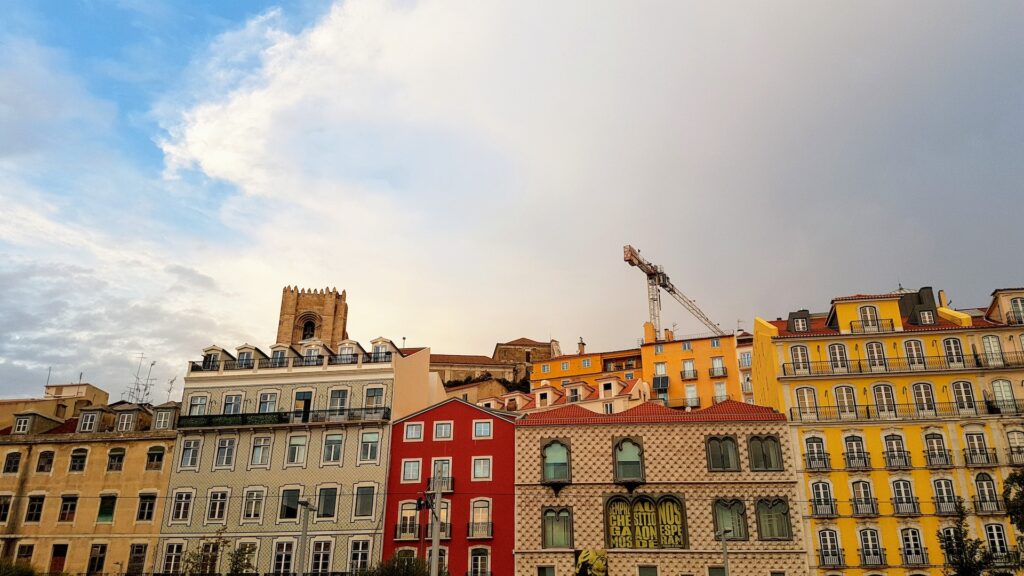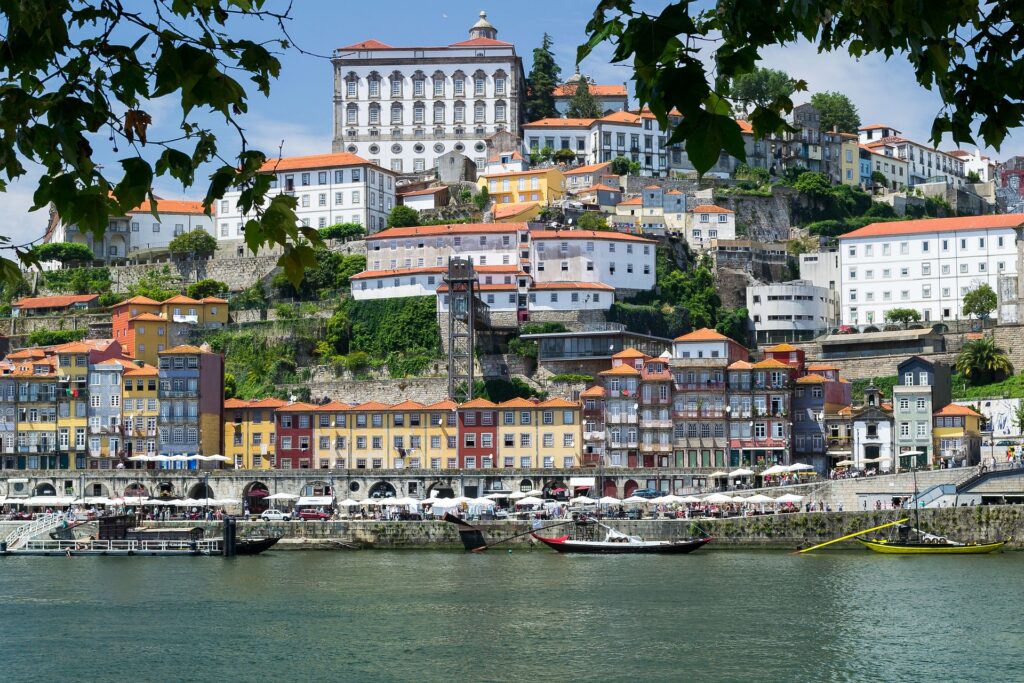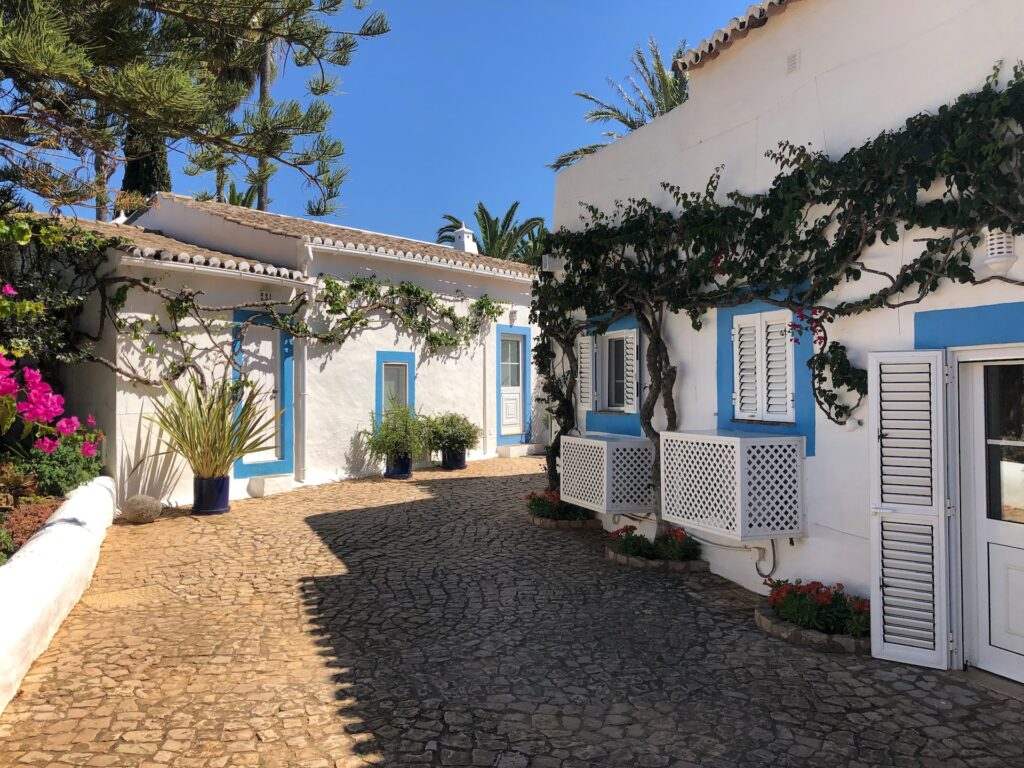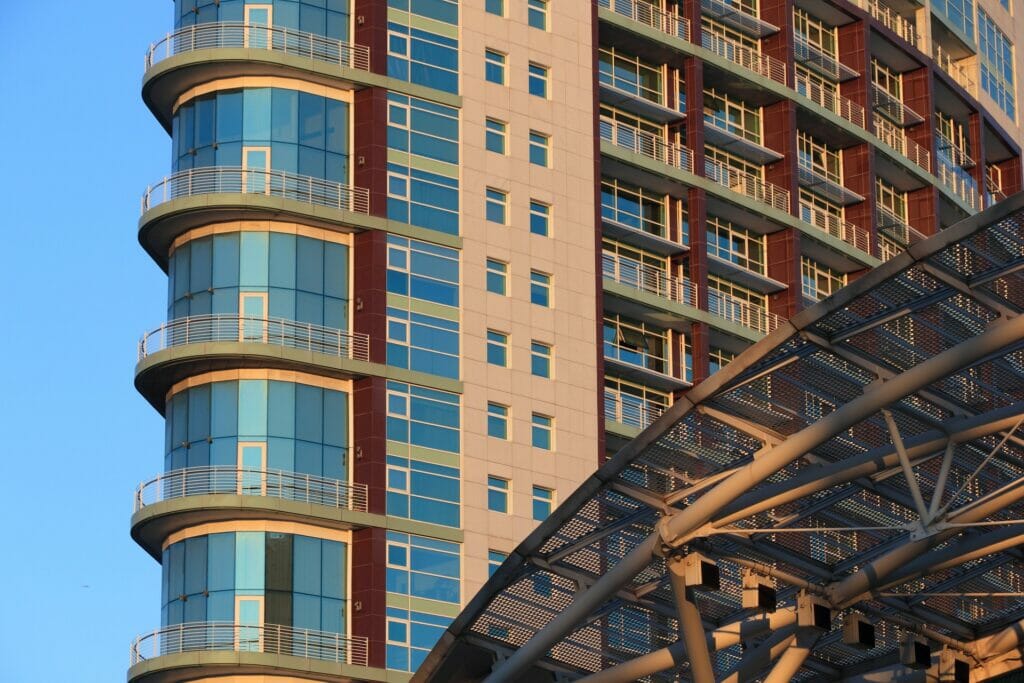Considering the prospect of purchasing property in Portugal? You might be curious about the process involved in buying a house in this country. While generally straightforward, there are nuances worth noting, especially when compared to other nations. In the subsequent article, we’ll delve into all the essential details, guiding you through each step of the way.
Portugal's Real Estate Market

Real estate in Portugal has become increasingly popular in recent years, and especially among foreign buyers.
Portugal offers an excellent quality of life, good weather, and a relax lifestyle that many people find appealing.
Additionally, programs such as the NHR (Non-Habitual Resident), which offers tax benefits to those who move to Portugal. Or the Portugal Golden Visa which offers residency to non-EU citizens who invest in real estate, has boosted demand for property in Portugal.
Property prices in Portugal vary depending on the location; moreover, prices tend and to be higher in popular tourist destinations such as Lisbon, Porto, and the Algarve region.
Nevertheless, in comparison to other Western European countries, acquiring a house in Portugal remains relatively affordable. Also, this aspect renders it an appealing destination for individuals seeking to invest in property or purchase a second home.
In Portugal, the real estate market is regulate, and there are several legal and administrative procedures that need to follow when buying property.
It is recommend that buyers seek the advice of a qualified lawyer and a real estate agent when navigating the buying process.
Why buy property in Portugal?
Portugal stands as a popular destination for property buyers globally, also offering a multitude of benefits to those considering owning a house in this picturesque country. Moreover, here are some of the key advantages of purchasing property in Portugal:
Affordable prices
Portugal’s real estate market is relatively affordable, especially compare to other European countries. And this makes it an attractive option for buyers looking for a good deal on a property.
Safe country
In the year 2023, the World Peace Index place Portugal in the seventh position among nations around the globe. Also his notable ranking reflects Portugal’s efforts and commitment to fostering peace and stability within its borders.
The country’s proactive approach to international relations and its dedication to resolving conflicts through diplomacy have contributed to this achievement.
Beautiful scenery
Portugal is knows for its stunning natural scenery, including its coastline, mountains, and forests. Owning a property in Portugal allows you to enjoy this beauty up close and in person.
Rich culture and history
Portugal has a rich cultural heritage, with a long and fascinating history that is evident in its architecture, cuisine, and art.
Owning a property in Portugal allows you to immerse yourself in this culture and explore all that the country has to offer.
Relaxed lifestyle
This Portugal is popular for its laid-back, relaxed lifestyle, with a focus on enjoying life and spending time with family and friends.
Owning a property in Portugal allows you to embrace this lifestyle and enjoy a slower pace of life.

Is buying property in Portugal a good investment?
Buying a house in Portugal can a good investment for several reasons, but it depends on various factors and your individual circumstances.
Here are some advantages you may consider:
- One of the most secure and appealing real estate markets in Europe
- Lowest real estate prices compare to other European capital cities
- High rental income yields can find, and especially in city centers and tourist areas due to the shortage of housing
- Investors are strongly protect by Portuguese legislation compare to other markets
- There are a diversify range of buying and investment opportunities in the capital, coast, or countryside
How to find a house for sale in Portugal?
Real Estate Agents
Real estate agents in Portugal can help you find properties that meet your specific requirements.
They have access to a wide range of properties and can provide advice on the buying process. Some popular agencies in Portugal include:
If you are considering premium properties you might check:
Online property portals
There are several online property portals that list properties for sale in Portugal and very easy to navigate, such as:
Newspapers
Local newspapers and classifieds in Portugal may also list properties for sale, and especially in smaller towns and villages. You may check:
Property auctions
This auctions represent a popular avenue for purchasing real estate in Portugal. but these auctions, known as “leilões imobiliários” in Portuguese, are usually organized by banks, financial institutions, as well as public entities like municipalities, courts, or tax authorities.
One popular platform for property auctions in Portugal is E-leilões, and an online auction site that specializes in the sale of distressed and repossessed properties.

Popular areas to buy property in Portugal
Portugal offers a wide range of locations to buy property, from cosmopolitan cities like Lisbon and Porto to charming coastal towns like Cascais and Albufeira.
But the Algarve region is also a popular area for those looking for a holiday home or retirement property.
Lisbon
Lisbon is the capital of Portugal and is known for its historic architecture, cultural attractions, and lively nightlife.
The city has a diverse range of neighborhoods, and each with its own character and atmosphere.
Property prices in Lisbon are generally higher than in other parts of Portugal, then also particularly in popular areas such as Chiado, Baixa, and Bairro Alto.
Porto
Porto is Portugal’s second-largest city and is known for its port wine, and charming riverside district, and historic buildings.
The city has a more laid-back atmosphere than Lisbon and is popular with expats looking for a slower pace of life.
Property prices in Porto are generally lower than in Lisbon but have been rising in recent years.

Algarve
The Algarve is a popular tourist destination in the south of Portugal, but also known for its sandy beaches, golf courses, and warm climate.
This region is particularly popular with retirees and second-home buyers. Property prices in the Algarve can vary widely depending on the location, and with some of the most sought-after areas being Vilamoura, Albufeira, and Lagos.
Silver Coast
Next the Silver Coast is a region of Portugal located north of Lisbon and stretches from the Atlantic Ocean to the hills of the interior.
Also this area is too known for its rugged coastline, traditional fishing villages, and historic towns.
Buying a home in the Silver Coast is generally cheaper comparing to Lisbon and the Algarve, but there are still some areas that are popular with expats, such as the town of Obidos and the beach resort of Sao Martinho do Porto.
Madeira
Madeira is known for its stunning natural beauty, with lush forests, too rugged mountains, and crystal-clear waters.
In addition this makes it an ideal location for those who love the outdoors and want to enjoy a relaxing, natural lifestyle.
Madeira consistently ranks high in quality-of-life indices, which make the island a popular tourist destination, with millions of visitors each year.
And this means that there is a high demand for short-term rental properties, making it an attractive option for those looking to invest in vacation rentals.
Portugal Real Estate: Types of properties
Furthermore, Portugal offers a range of property types, including apartments, townhouses, villas, and farmhouses. Each property type has its advantages and disadvantages, so it’s important to consider which one suits your needs and lifestyle.
Apartamento
This is the Portuguese word for an apartment, which is a self-contained living unit within a larger building that is typically divided into multiple units.
Moradia
Also is the Portuguese word for a house or a dwelling, which refers to a standalone residential property that is not connected to any other building.
Loft
This style of living space is typically characterized by high ceilings, large open spaces, and minimal partitions. Furthermore, lofts often have an industrial aesthetic and are commonly found in converted warehouses or factories.
Moradia Geminada
Also is a type of semi-detach house, which is a residential property that shares one or more walls with another house. Moradia geminada is a specific term used in Portugal to refer to this type of property.
Duplex
Moreover this is a residential unit that spans two floors of a building. Additionally, duplexes often have a staircase that connects the two levels, and may include features like a private entrance or outdoor space.
Videnda
This is a Portuguese word for a villa or a large, luxurious house, often with a large garden or outdoor area.
Casa de Campo
And this is a type of dwelling that is typically small and rustic in design, often featuring a steep-pitched roof and made of wood or too stone.
Penthouse
This is a luxurious apartment that is typically locate on the top floor of a building, also offering panoramic views and often featuring high-end finishes and amenities.
Quinta
Also this is a Portuguese word for a country estate or farm, often featuring a large house or manor, as well as agricultural land or gardens.

Process of buying property in Portugal
Property search
Begin by searching for properties that meet your requirements and budget. But you can work with a real estate agent, and browse property websites, or attend property expos.
Offer and negotiation
Once you have found a property that you are interest in, and make an offer to the seller. Negotiations may take place until a final price is agreed upon.
Preliminary contract
The next step is to sign a preliminary contract, where you also known as a promissory contract (CPCV). This is a legally binding agreement between the buyer and seller that outlines the terms of the sale, including the price, payment terms, and other conditions.
In this t this point, the buyer is also require to do a downpayment, also in general equivalent to 10 percent of the agreed price to avoid buyer pulls out of the deal.
Property Check
It’s recommend to carry out a survey of the property to identify any potential issues or defects. And this can be arrange by the buyer or through a surveyor recommend by the real estate agent.
Due Diligence
A law firm will carry out legal checks on the property, also including verifying ownership, checking for any liens or mortgages, and ensuring that all permits and licenses are in order.
Property Deed
Once all legal checks and surveys have been complete, the final contract can sign. This is typically done at a notary public office, and the full purchase price is paying at this time.

Buying a house in Portugal as a foreigner
Foreigners are allowed to buy property in Portugal, and the process is relatively straightforward. However, there are some regulations and requirements that you should be aware of before you begin the process.
Additionally here are some key points to keep in mind when buying a property in Portugal as a foreigner:
Tax Number (NIF) in Portugal
As a foreigner, you’ll need to obtain a Portuguese tax identification number (NIF) in order to buy a property in Portugal. Also this can obtain from the Portuguese tax office (Finanças).
Portuguese Bank account
Equally important, You’ll need to have a Portuguese bank account in order to purchase a property in Portugal. This is where you’ll transfer the funds for the purchase, pay the taxes and fees, and receive any rental income.
Legal representation
It’s highly recommend to work with a Portuguese lawyer who is experience in real estate transactions. They can help you navigate the legal aspects of the purchase and ensure that everything is in order.
Home insurance
Known as property insurance, it’s mandatory in Portugal and provides coverage for damage to your property and personal belongings. Moreover, it offers liability coverage if someone is injured on your property.
It can also provide coverage for natural disasters such as earthquakes or floods, which can be common in Portugal.

Applying for a mortgage in Portugal as a foreigner
Foreigners can obtain a mortgage in Portugal to buy a house in Portugal, but the process may be more complex than for Portuguese citizens. Here are some things to keep in mind:
Interest rates
Interest rates for mortgages in Portugal can fluctuate based on the lender and the borrower’s creditworthiness. Furthermore, in certain unique scenarios, non-residents might encounter higher interest rates compared to residents.
Maximum loan-to-value (LTV)
The maximum LTV ratio for non-residents typically stands at 80% of the property’s value. Nevertheless, it’s worth noting that some lenders may provide variations in LTV ratios base on the borrower’s financial situation.
Life insurance
Subscribing a life insurance is requests by the Portuguese banks and it provides financial protection for your love ones in the event of your death.
Language
Next mortgage documents in Portugal are commonly written in Portuguese. Hence, it is crucial to collaborate with a lender who offers translation services or can furnish documents in your native language.
Required documentation
Non-residents will typically need to provide the following documentation to support their mortgage application:
- Passport
- Portuguese Tax Number (NIF)
- Proof of Address
- Credit report
- Last 3 pay slips
- Recent bank statements
- Most recent tax returns
- A copy of the tenancy agreement
- Floorplan of the apartment /house

Costs associated with buying house in Portugal
Property transfer tax (IMT)
IMT tax is base on the purchase price of the property and can range from 0% to 8% for residential properties. Also there are 3 main criteria’s that has influence the IMT calculation: a) Urban property vs. rural property, b) Property is in Mainland vs. islands (Madeira or Azores) and c) Primary residency vs secondary home.
You can use this IMT tax Calculator.
Stamp duty
Stamp duty is charged for all documents and arrangements in respect of real estate, including deeds, contracts and mortgages. This tax is based on the purchase price of the property and is typically 0.8% for residential properties.
Legal fee
It’s important to hire a lawyer to review the purchase contract and ensure that all legal requirements are met. Legal fees can range from 1% to 2% of the purchase price.
Notary fee
Notary fees are charged for the services of a notary public, who is responsible for verifying the legality of the transaction. Notary fees can range from 0.3% to 0.5% of the purchase price.
Registration fee
These fees are charged for registering the property transfer with the Land Registry. Registration fees can range from 0.05% to 0.25% of the purchase price.
Real estate agent fee
If you use a real estate buyer’s agent to help you find a property, their fees will typically be around 5% of the purchase price.
For more videos about investing or moving to Portugal, explore our YouTube channel here: YouTube Channel Portugal Residency Advisors.
Taxes related to property ownership in Portugal
After completing the purchase, there are ongoing taxes and fees associate with property ownership in Portugal. Here are some of the most common:
Annual property taxes (IMI)
IMI is an annual tax base on the tax value of the property. The tax rate ranges from 0.3% to 0.8% for urban properties and 0.8% for rustic properties.
You can IMI tax details cost using IMI Calculator.
Additional Annual wealth property Tax (AIMI)
AIMI stands for “Adicional ao Imposto Municipal de Imóveis” which translates to Additional Municipal Property Tax. In addition It is an annual property tax in Portugal that is levied on the combine fiscal value of all residential properties own by a taxpayer as of January 1st of each year worth above €600.000.
There are three levels of AIMI Tax in Portugal:
- 0,7% on properties valued between €600,000 and €1M
- And 1,0% on properties valued between €1M and €2M
- 1,5% if the total properties value is over €2 million
Tax on rental income generated by the property
Moreover, If you rent out the property, you’ll need to pay income tax on the rental income generated. There is a flat tax rate of 28%.
Common deductible expenses include property management fees, repairs and maintenance costs, insurance premiums, local property taxes (IMI), financing costs such as loan interest, and other relevant expenses like advertising and professional fees.
Non-resident individuals may have the option to be taxed under the Non-Habitual Resident (NHR) regime or applicable tax treaties.
Are you interest in renting out your property? Check out what you should consider when finding a good property manager in Portugal.

Tips for a successful buying real estate in Portugal
Learn the language
Knowing some basic Portuguese can be too extremely helpful during the buying process, especially when dealing with local professionals.
Check the property’s legal status
Next, make sure the property is free of any legal issues, such as liens or encumbrances, and that all necessary permits and licenses are in place.
Get to know the neighborhood
Visit the area where you’re considering buying a property to get a sense of the local culture, amenities, and infrastructure.
You might like to read the comprehensive guide about the pros and cons of living in Portugal.
Be aware of the costs
In addition to the purchase price, be aware of the various costs associated with buying a property in Portugal, including taxes, fees, and ongoing expenses.
Setting a budget
Furthermore, before you begin your property search, it’s important to have a clear idea of your budget. This will help you narrow down your search to properties that fit within your price range and avoid wasting time looking at properties that are out of your budget.
Hiring a lawyer or real estate agent
It’s recommend that you hire a lawyer or real estate buyer’s agent who specializes in Portuguese property law.
They can guide you through the buying process, help you negotiate with the seller, and ensure that all legal requirements are met and also avoiding the most common mistakes.
Understand financing options
If you require financing to purchase a property in Portugal, it’s important to research the various options available to you.
This may include obtaining a mortgage from a Portuguese bank or seeking financing from a bank in your home country.

Why invest with Portugal Residency Advisors
Local Expertise
We know Portugal well. Therefore, based on our extensive local knowledge, we firmly believe that concentrating our services in a single country destination is the best approach to provide you with the most thorough and useful information.
Holistic Approach
Also we offer a streamlined communication channel for the entire process, ensuring a seamless experience from start to finish. Our comprehensive service encompasses all facets of your real estate investment journey, seamlessly handling property search, negotiation, legal matters, due diligence, and property management.
Independent Service
As an independent buying agent, we possess the flexibility to collaborate with any agent, seller, promoter, or developer, thereby granting you access to a wide array of options in the real estate market. This allows us to objectively analyze every opportunity and locate the ideal property for you at the most favorable price, devoid of any complications.
Simple Process
Technology plays a pivotal role in our company, enabling us to furnish you with detailed property market information and reduce our clients’ engagement in paperwork. As customers ourselves, we possess a deep understanding of how to effectively cater to your needs.
Frequently Asked Questions About buying property in Portugal
What are the steps involved in buying property in Portugal?
The process of buying a property in Portugal typically involves finding a property, negotiating the price, getting a property survey, signing a promissory contract, transferring funds, completing the transaction at the notary, and registering the property with the local land registry.
What are the legal requirements to buy property in Portugal?
To purchase a property in Portugal, you will need to have a Portuguese fiscal number, a Portuguese bank account, and a valid identification document, such as a passport. It’s also advisable to work with a qualified lawyer who can guide you through the legal process.
How can I find a reputable real estate agent in Portugal?
You can find a reputable real estate agent in Portugal by searching online, getting recommendations from friends or family members, or working with a real estate agency that is licensed and regulated by the Portuguese government.
What kind of taxes and fees will I need to pay when buying a property in Portugal?
The taxes and fees associated with buying a property in Portugal include stamp duty, property transfer tax, notary fees, and registration fees.
These costs can vary depending on the value of the property and other factors, so it’s important to work with a qualified lawyer to understand your financial obligations.
How can I ensure that the property I am interested in has a clear title and no outstanding debts?
Before purchasing a property in Portugal, it’s important to conduct a thorough title search to ensure that there are no outstanding debts, liens, or encumbrances on the property. A qualified lawyer can help you with this process and ensure that the transaction is legally sound.
How do I get a mortgage in Portugal, and what are the requirements?
To get a mortgage in Portugal, you will need to have a Portuguese fiscal number, a Portuguese bank account, proof of income and employment. Finally, a good credit score. It’s also important to work with a qualified mortgage broker who can help you find the best loan products and rates.
Are there any restrictions on foreigners buying property in Portugal?
There are no restrictions on foreigners buying property in Portugal.
What are some important factors to consider when choosing a property in Portugal?
And then, some important factors to consider when choosing a property in Portugal include location, property type, price, condition, and potential rental income.
How can I protect myself from fraud when buying property in Portugal?
In Addition, It’s important to work with reputable real estate agents and lawyers, conduct thorough due diligence, and verify the seller’s identity and ownership of the property. And it’s also important to avoid making payments in cash or through unsecured channels.
What kind of legal support can I expect when buying a property in Portugal?
Finally, from a qualified buyer’s agent or lawyer who can help you with due diligence, contract review, negotiation, and transaction management. Lastly, a lawyer can also help you navigate any legal issues that may arise during the buying process.




